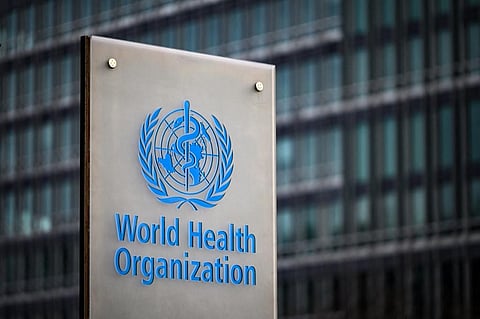

NEW DELHI: The World Health Organisation (WHO) on Monday said that Covid-19 continues to be a public health emergency of international concern but acknowledged that the pandemic is at a “transition point.”
WHO’s International Health Regulations Emergency Committee discussed the pandemic at its 14th meeting on Covid-19 on January 27, and Director-General Tedros Adhanom Ghebreyesus agreed that the public health emergency of international concern, or PHEIC, declaration should continue.
The decision from the WHO came precisely three years after Covid-19 has first declared a public health emergency of international concern. More than 6.8 million people have died during the outbreak.
The Committee acknowledged that the Covid-19 pandemic might be approaching an inflexion point.
“Achieving higher levels of population immunity globally, either through infection and vaccination, may limit the impact of SARS-CoV-2 on morbidity and mortality, but there is little doubt that this virus will remain a permanently established pathogen in humans and animals for the foreseeable future. As such, long-term public health action is critically needed,” the Committee said in a statement on Monday.
While eliminating this virus from human and animal reservoirs is highly unlikely, mitigation of its devastating impact on morbidity and mortality is achievable and should continue to be a prioritised goal, it added.
The WHO’s advisory committee urged the WHO to propose “alternative mechanisms to maintain the global and national focus on Covid-19 after the PHEIC is terminated.”
WHO also urged countries: to remain vigilant and continue reporting surveillance and genomic sequencing data; to recommend appropriately targeted risk-based public health and social measures (PHSM) where necessary; to vaccinate populations most at risk to minimise severe disease and deaths; and to conduct regular risk communication, answering population concerns and engaging communities to improve the understanding and implementation of countermeasures.
The statement said that the committee members expressed concern about the ongoing risk posed by Covid-19, with a still high number of deaths compared to other respiratory infectious diseases, the insufficient vaccine uptake in low- and middle-income countries, as well as in the highest-risk groups globally, and the uncertainty associated with emerging variants.
“They recognised that pandemic fatigue and reduced public perception of risk have led to drastically reduced use of public health and social measures, such as masks and social distancing. Vaccine hesitancy and the spreading misinformation continue to be extra hurdles to implementing crucial public health interventions,” it added.
At the same time, the long-term systemic sequelae of post-COVID conditions and the elevated risk of post-infection cardiovascular and metabolic disease will likely have a severe negative impact on the population, and care pathways for such patients are limited available in many countries; the statement further said.
The Committee acknowledged that the virus could evolve into new variants with unpredictable characteristics.
It also expressed a need for improved surveillance and reporting on hospitalisations, intensive care unit admissions, and deaths to understand the current impact on health systems better and to appropriately characterise the clinical features of COVID-19 and post-COVID-19 conditions.